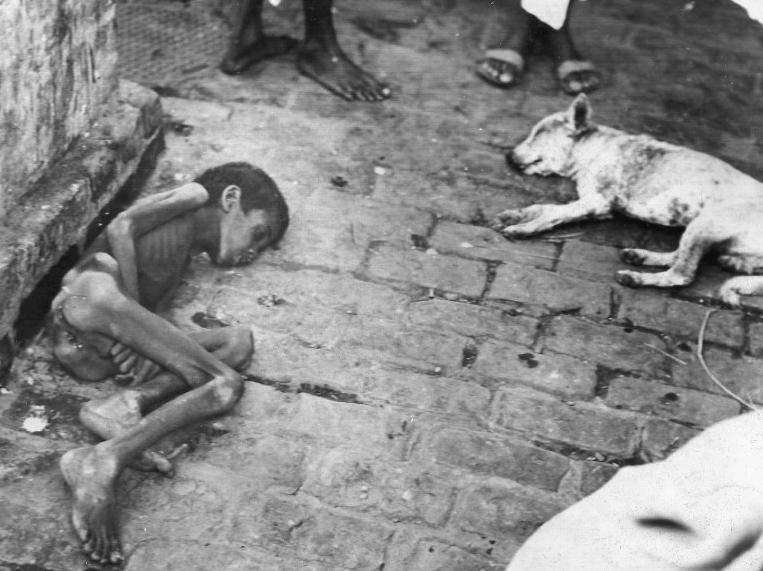.
.
.
Germany does give compensation to countries its army visited in WWII, and some Greeks would like a massive compensation from Germany, for its aggressive occupation of Greece.
But there are limitations to such compensations......I mean where would it lead? Should tiny Mongolia pay compensation to China for the destructive invasion of that country?

Dr. MM Singh was a weak corrupt prime minister, and a front for Sonia. Such a man would obviously go all the way to the UK and praise the evil British empire, whilst 30 million of his countrymen died under its very rule.
Compensation from the UK is not necessary but the vestiges of the evil British empire should be erased. Indians should speak an Indian language whilst they serve the government of the country. The INSTITUTIONS of India should be decolonised starting with the military, police and all else.
India should leave the Commonwealth which is essentially a celebration of the British empire.
Then maybe India will be taken seriously as a country.
Otherwise 'independent' Macaulay brown sahib' India with its high levels of corruption and misgovernance is doing quite well.....with a PPP GDP of $ 8 trillion soon, and the third largest economy on earth.
________________________________________
Shashi Tharoor's Oxford address revives colonial debate
.
.NEW DELHI: Former Union minister Shashi Tharoor's spirited call at the Oxford University for reparations for losses to the Indian economy due to 200 years of British colonial rule went viral online on Wednesday and stood in sharp contrast to the July 2005 speech at the same institution of the then PM Manmohan Singh who had extolled British rule in India.

Singh had gone to Oxford to receive an honorary degree of Doctor of Civil Law and had said despite the economic impact, "It is possible to assert that India's experience with Britain had beneficial consequences... Our notions of the rule of law, of constitutional government, of free press, have all been fashioned in the crucible where an age-old civilisation met the dominant Empire of the day... all (our) great institutions, derived from British-Indian administration, have served the country well."

In his speech, Tharoor pointed out, "India's share of the world economy when Britain came to our shores was 23%. By the time the British left, it was down to less than 4%. Why? Simply due to the fact India was governed for Britain's benefit. Britain's rise in over two centuries was financed by its depredation of India."

In his 15-minute address as part of a debate on British colonialism, Tharoor argued that Britain's prosperity in the 18th and 19th century was built on resources taken from India. Britain's Industrial Revolution was based on the systematic deindustrialization of India, turning the country from an exporter to an importer of English goods.

"India was Britain's biggest cash cow, biggest consumer of British goods and provider of high incomes for British civil servants. We literally paid for our own oppression," he said.

However, Singh had argued that the British had had a positive impact. "Today, with the balance and perspective offered by the passage of time and the benefit of hindsight, it is possible for an Indian Prime Minister to assert that India's experience with Britain had its beneficial consequences too," Singh said.

In contrast, Tharoor said 30 million Indians died due starvation in famines induced by the British. He cited the example of the Great Bengal Famine during the Second World War where four million people died because Winston Churchill deliberately as a matter of policy diverted essential supplies to reserve stockpiles for British soldiers. When these deaths were brought to his notice, Churchill asked whether Gandhi had died.

Tharoor said India's contribution to Britain's First World War effort stood at eight billion pounds if computed now. Britain's Second World War debt stood three billion pounds in 1945, of which 1.25 billion pounds was owed to India. "They never paid it back," Tharoor said.
He addressed the question of the Indian Railways as legacy of British rule by saying, "Many countries built railways and roads without needing to be colonized." He said the British built the rail network for their benefit and made India bear the cost. They have a moral debt to pay, he said.